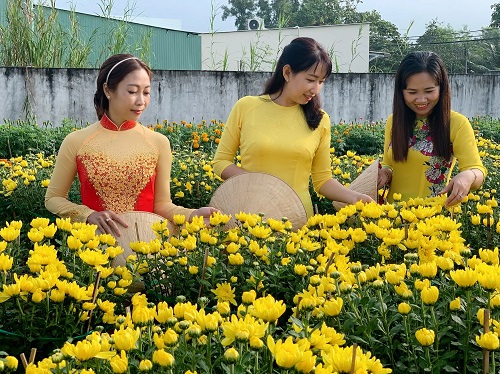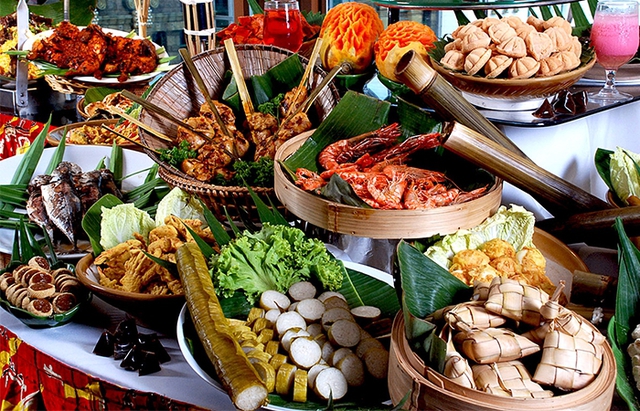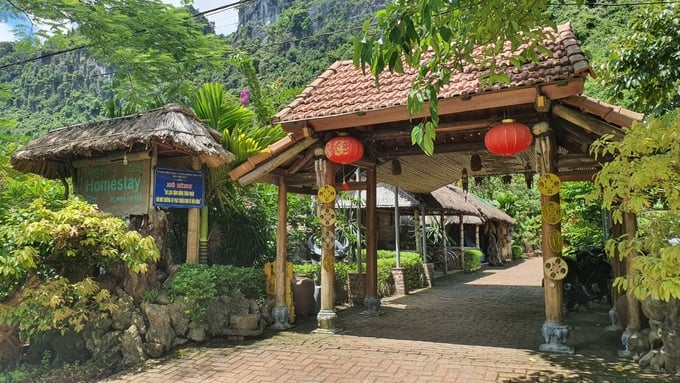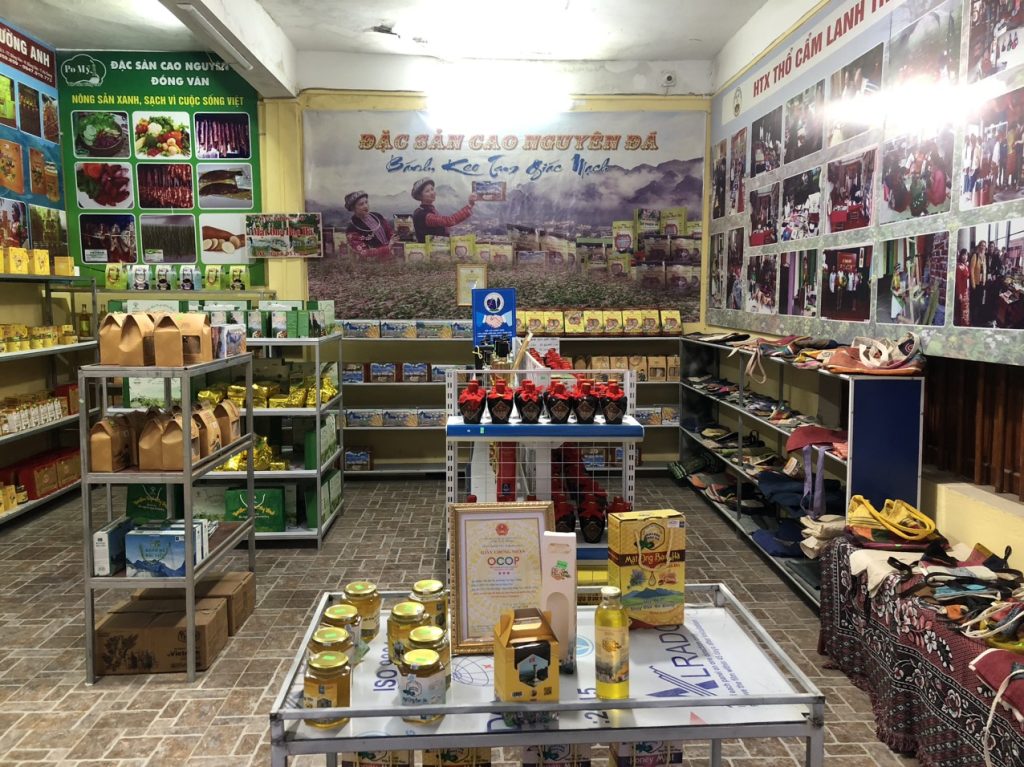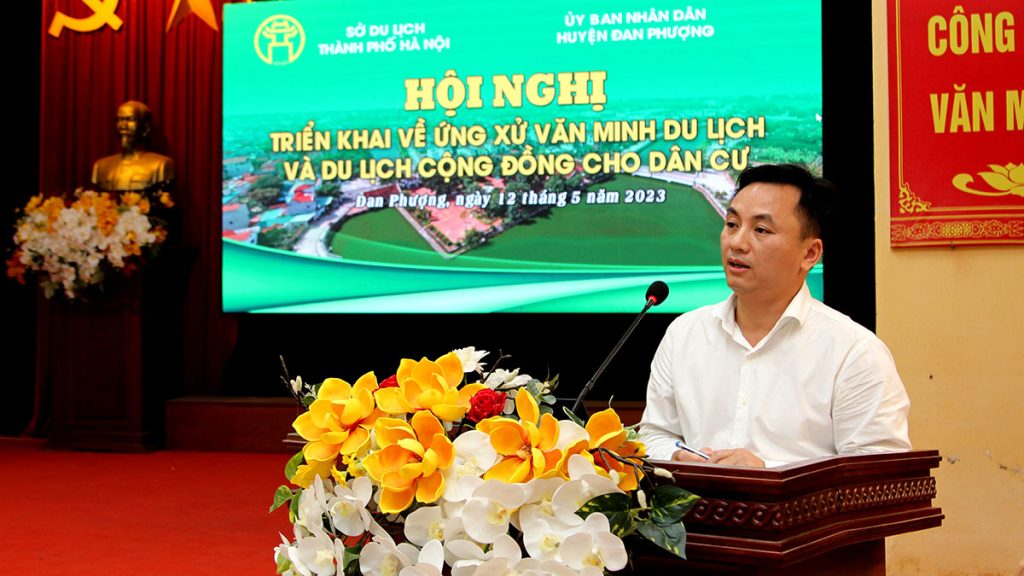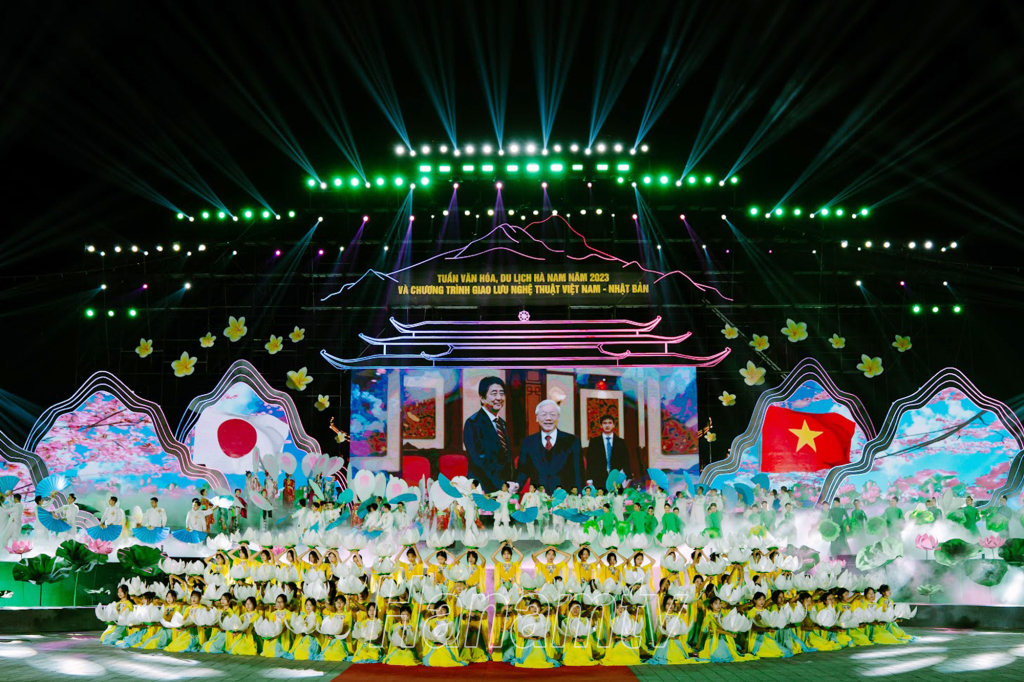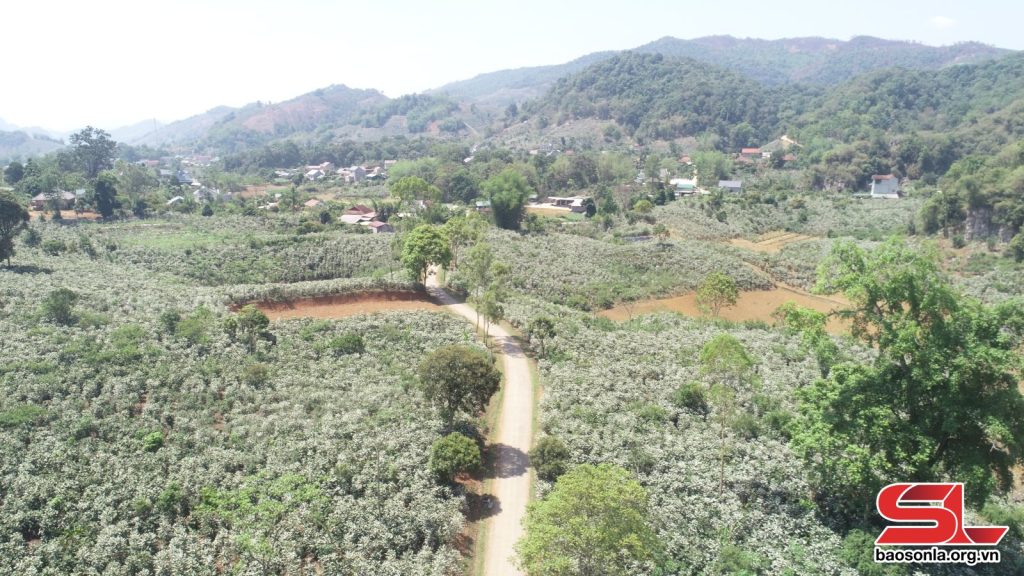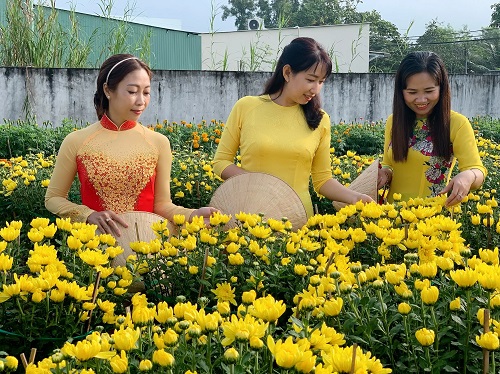
The Pho Tho – Ba Bo Flower Village has been oriented toward development linked to tourism
Potential
Can Tho has an agricultural land area of 114,034 hectares (over 79% of the natural land area), of which the rice cultivation area is about 76,000 hectares, fruit trees about 25,000 hectares (specialized cultivation 11,880 hectares), and aquaculture area about 10,000 hectares. Annually, rice output reaches over 1.3 million tons, over 200,000 tons of fruits, and over 250,000 tons of seafood. This is an advantage for Can Tho to develop agricultural tourism.
Currently, Can Tho has many models of agricultural tourism, mainly developed in the form of fruit tree gardens. There are over 35 sites and tourist points, about 30 homestays, and 2 community tourism sites (Son Islet, Tan Loc Islet). At these places, there are characteristic experiences associated with the lives of the Mekong Delta with its rivers and gardens: fishing with nets, fishing, setting traps, planting rice, planting vegetables, folk games in the rice fields and fruit gardens, rowing boats, catching ducks; or experiencing folk cakes and dishes, craft villages and OCOP products.
One of the localities that has strongly developed agricultural tourism is Phong Dien district, with nearly 9,000 hectares of fruit tree cultivation. Here there are 65 tourist sights and historical and cultural relics, of which more than 30 are eco-gardens and tourism sites; focusing on My Khanh, Nhon Ai, Nhon Nghia communes, and Phong Dien town…
Mr. Pham Van Hoang, owner of the 9 Hong Garden (My Nhon hamlet, My Khanh commune), said: “We used to do farming, but then switched to tourism. My garden is about 1.5 hectares planting specialty fruits of Phong Dien. We also cooperate with surrounding gardens to ensure a year-round supply of fruits for tourists. Tourists visiting the fruit garden can also try fishing traps, or make folk cakes and enjoy rustic cuisine”.
Meanwhile, the community tourism model in Son Islet (Binh Thuy district) attracts tourists with fish cage farming models on rivers, experiences of fruit gardens, craft villages, making folk cakes, watching flying fish, toad performances, feeding fish with spoons… Son Islet is located in the Hau River, surrounded by green trees and the local people still maintain a lifestyle of rivers and gardens. This forms an authentic space to experience agriculture, rivers, and gardens lifestyle of the Mekong Delta.
In addition to agricultural resources, Can Tho also has 12 craft villages, including craft villages recognized by the People’s Committee of Can Tho City: Thuan Hung rice paper village (Thot Not), Ba Rich confectionery village (O Mon), Thom Rom net weaving village (Thot Not), Pho Tho – Ba Bo flower village (Binh Thuy). Notably, Thuan Hung rice paper village was recognized as a national intangible cultural heritage in 2023.
Currently Can Tho has 140 OCOP products, including 70 three-star products and 70 four-star products. Notably, My Khanh Tourism Village was recognized as the first 4-star OCOP tourism product in the Mekong Delta. Can Tho’s OCOP products are diverse, from organic vegetables, fresh fruits, processed agricultural products, herbal teas, spices, bird nests, and cordyceps to community-based tourism services.
It can be seen that Can Tho has great potential for developing agricultural and craft village tourism. However, Can Tho’s agricultural tourism products are still fragmented and monotonous, with overlapping tourism models mainly focusing on fruit tree gardens. Craft villages have also not fully exploited their potential for many reasons, with few households engaged in production and a lack of experiential activities for tourists. There is also a need to connect better tour routes with travel agencies and management and exploitation of tourism products from craft villages still overlap.
Orientation for developing agricultural tourism and craft villages
From the above reality, the tourism sector of Can Tho City builds solutions to promote the potential of agricultural tourism and craft villages. Accordingly, Can Tho City is implementing the project “Developing agricultural tourism in Can Tho City in the 2021-2025 period, with a vision to 2030”, in which in addition to traditional agricultural tourism, Can Tho develops additional types of urban agricultural tourism and high-tech agricultural tourism to extend the trips of tourists; focusing on developing agricultural tourism in Phong Dien, Cai Rang, Binh Thuy, Thot Not districts and orienting to gradually expand to outlying areas such as Thoi Lai, Co Do, Vinh Thanh by 2030. Specifically, two models have been selected for implementation, namely agricultural tourism for visitors and accommodation on a trial basis at Can Tho Farm and Bao Gia Trang Garden.
The People’s Committee of Can Tho City has also issued Plan No. 107/KH-UBND on implementing the program to develop rural tourism in building new rural areas until 2025, in which it determines to “strongly promote sustainable tourism development based on green growth, linked to rural tourism development, OCOP products and local cultural values, strengths of each locality; carry out promotional and tourism promotion activities, build a network of typical rural tourism destinations and products associated with new rural area construction”.
Specifically, by 2025 Can Tho aims to develop and standardize rural tourism destinations and products, striving to have at least one tourism destination recognized for its advantages in agricultural culture, craft villages, or local ecological environment; 50% of rural tourism service business establishments meet standards for serving tourists…
To achieve these goals, Can Tho will focus on developing quality, diverse, and distinctive tourism products linked to the city’s identity, with experiential and high-added value according to market orientation and suit different target groups’ needs; develop a high-quality rural tourism workforce; build and implement pilot models for sustainable rural tourism development oriented towards green, responsible and sustainable tourism…

Experience the agricultural tourism model in the inner city at Vo Song Farm
The Department of Agriculture and Rural Development of the city will also coordinate, guide, and instruct farmers to implement clean agricultural and organic agricultural production processes; promote rural tourism development by tapping potentials, advantages of agriculture, craft villages, culture, and local ecological environment; organize connecting OCOP subjects with tourism sector entities to form some points displaying OCOP products, Can Tho specialties…
Specifically for craft village products, Can Tho is implementing the construction of a flower village model, with Pho Tho – Ba Bo craft flower village chosen as the point, to serve tourism, gradually converting production structures: combining traditional flower production for monthly and festival use with diverse flower, ornamental plant and year-round green varieties to meet diverse market demands while increasing farmer household linkages to serve tourists; implementing the scientific and technological project “Improving production process for rice paper of Thuan Hung rice paper village, Thot Not district, Can Tho city”, supporting participating households to improve production processes meeting food safety and hygiene standards, orienting toward building brands associated with tourism.
In the long run, Can Tho pays attention to overall planning, in which it clearly defines that developing agricultural and craft village tourism is a driving force to sustainably build new rural areas. Agricultural and craft village tourism development planning necessarily links to new rural area construction programs. Localities must focus on regional linkages to develop characteristic agricultural tourism products, forming signature product spaces and chains to create distinctive highlights. In addition, investments are also needed in human resources and infrastructure foundations.
Source: Can Tho News – Translated by Hoang Dat
Can Tho Portal – cantho.gov.vn

